
28-04-2024 –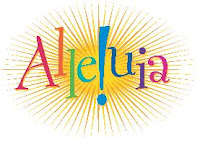 Fifth Sunday of Easter
Fifth Sunday of Easter
Gospel reading: John 15:1-8
vs.1 Jesus said to his disciples:
“I am the true vine, and my Father is the vinedresser. 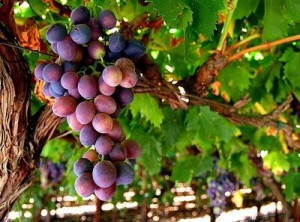
vs.2 Every branch in me that bears no fruit he cuts away,
and every branch that does bear fruit he prunes to make it bear even more.
vs.3 You are pruned already, by means of the word that I have spoken to you.
vs.4 Make your home in me, as I make mine in you. As a branch cannot bear fruit all by itself, but must remain part of the vine, neither can you unless you remain in me.
vs.5 I am the vine you are the branches. Whoever remains in me, with me in him, bears fruit in plenty; for cut off from me you can do nothing.
vs.6 Anyone who does not remain in me is like a branch that has been thrown away – he withers; these branches are collected and thrown on the fire, and they are burnt.
vs.7 If you remain in me and my words remain in you, you may ask what you will and you shall get it.
vs.8 It is to the glory of my Father that you should bear much fruit, and then you will be my disciples.”
******************************************
We have four commentators available from whom you may wish to choose . Click on the name of the commentator required.
****************************************
Michel DeVerteuil
Lectio Divina with the Sunday Gospels
www.columba.ie
General Textual Comments
Each year, on the fifth and sixth Sundays of Easter, the gospel readings are taken from the long discourse which, according to St John, Jesus gave to his apostles on the night before his passion. This is contained in chapters 13 to 17 of the gospel. This Sunday’s extract gives us the parable of the vine and as always it has different perspectives which we need to go into.
The passage starts with the words, “Jesus said these words to the disciples“. This little introductory phrase reminds us of an important point: Jesus’ words were never spoken at some indeterminate time; they were said by him at a particular moment. At this time, for example, the apostles were present with him; they seemed to be looking ahead to the coming passion and anticipating the part they were to play in it.
In fact we know now that they were not ready for it. He was giving them a warning about what was going to happen. He was also telling them of what lay in the future for them once the passion and death of Jesus was over.
Textual comments
– Verse 1 The Father is the vine dresser. The parable is telling us first that Jesus is the true vine and his Father who dwells in the heavens is the vine dresser. We need to spend some time just meditating on this simple but very deep passage. Jesus is the humble servant of Christians, suffering so that we can all be safe. The Father meanwhile is a general overseer; he is situated way above our heads, in heaven. This is telling us something very important about Jesus’ mission in the world. It is reminding us of how he saw himself and of his deep relationship with his Father in heaven.
– Verses 2 and 3. Christians then are branches of the “true vine”. When a branch bears no fruit, the reason is clear – it is not linked to the vine; the Father then simply cuts it away and lets it lie there so that it dies without producing any more fruit. If on the other hand, a branch does bear some fruit, the heavenly Father is also very busy. He prunes it so that it can bear even more.
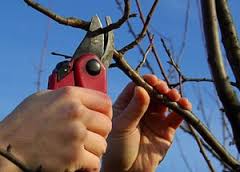 – Verse 3. The interpretation then changes. It asks the question, “What is the pruning instrument?” The answer is simply that it is the actual words of the great Jesus – “It is by means of the word I have spoken to you”. Jesus’ words then are not mere words, they are pruning instruments; they can change our behaviour and can make important differences happen in how we deal with one another. Jesus then makes a further distinction. “Make your home with me as I make mine in you”. For ordinary people, “being in the vine” merely means making a choice, then letting it influence how we deal with others.
– Verse 3. The interpretation then changes. It asks the question, “What is the pruning instrument?” The answer is simply that it is the actual words of the great Jesus – “It is by means of the word I have spoken to you”. Jesus’ words then are not mere words, they are pruning instruments; they can change our behaviour and can make important differences happen in how we deal with one another. Jesus then makes a further distinction. “Make your home with me as I make mine in you”. For ordinary people, “being in the vine” merely means making a choice, then letting it influence how we deal with others.
In Jesus however, it is rather a matter of accepting that we are in him. We can then allow ourselves to move from that link and so touch the reality of the people we meet.
– Verses 4 and verse 5. The parable takes a new turn. Though linked to the old we get a new development. No branch of the vine can bear fruit all by itself, it must remain part of the vine. The branches too cannot bear fruit unless they remain linked with him, and are settled with him. We think of people in our time who bear fruit but these are the results of selfishness and of self-righteousness. They do not come from making themselves available to Jesus, the source of all selflessness in the world. “I am the vine and you are the branches. Whoever remains in me with me in him will bear fruit in plenty.”
The next phrase is full of meaning: “Cut off from me then, you can do nothing”. We think of people who bear fruit but are not tied to Jesus and are therefore not to be trusted in any way. Jesus of course stands for all who are truly life-giving to people. Their present religious affiliation is no obstacle to bearing this wonderful fruit.
– Verse 6. Those who do not remain in me are like branches which have been thrown away. They wither and eventually die. These branches are collected and then thrown into the fire. They are useless until they can be totally burnt away and so disposed of.
– Verse 7. This is what happens when a branch remains attached to the vine and bears fruit from it: “You will ask for what you will and you will get it.” The person of Christ has a special relationship with the Father in heaven, a relationship based on their intimacy with Jesus.
– Verse 8. Conclusion to the passage. This is what being a disciple is all about – “It is to the glory of God that you should bear much fruit.” There is a relationship of great love between Jesus’ disciples and the Father. It is based entirely on the intimacy between them. Remember of course that this intimacy is not a matter of receiving a Christian upbringing.
Scripture Prayer
“The purpose of the Master is to help you see the uselessness of hanging on.“ ..Zen saying
Lord, we remember times of great crisis in our lives:
* a friendship of long standing breaking up;
* we lost our job;
* we – or someone dear to us – became seriously ill;
* our country went through a time of great unrest or crisis.
We felt totally lost, as if you had cut us off
and we were a dead branch lying on the ground next to the tree.
But that wasn’t it.
What had happened was that we had stopped bearing fruit
and you were being a good vine dresser, pruning away dead branches
and letting us get in touch with you at a deeper level,
so that your love would flow through us and we could bear fruit again.
“The resurrection is like the first eruption of a volcano, which shows that it is the interior of a world, where God’s fire is already burning.“ …Karl Rahner
Lord, our civilisation has lost its energy:
we have become complacent about our accomplishments and the fruit we have borne;
we no longer have the creativity to face new challenges.
We pray that your Church may speak the words of Jesus today,
pruning away the dead branches of greed, individualism, the desire to dominate,
so that humanity may bear fruit more abundant than before.
Lord, as teachers, parents, leaders, we sometimes have to correct others.
Give us the wisdom that we need to be good vine dressers after your image,
that we may not be afraid to prune what is stopping life,
and yet not so harsh that those we correct may feel cut off from us
and unable to bear fruit again.
Lord, we remember at this time those who are involved in the conflicts
in Iraq, the Ukraine, Sudan and in the Middle East.
We pray that like Jesus himself they may work for the true salvation of all the world.
“In giving us his love, God has given us his Holy Spirit, so that we can love him with the love wherewith he loves himself.” … Meister Eckhart
Lord, we thank you for the wonder of friendship.
We remember those who have become loyal friends to us.
They accept us as we are, just as we accept them. We are part of their lives,
so that our joys and sorrows affect them as theirs affect us.
Wherever we go we are still together because we have become part of each other.
Truly they have made their home in us, and we our home in them.
Lord, this is how you want to relate with us, and us to relate with you.
Lord, people who work for a new kind of society
often think they can achieve it on their own,
following their own pace with no regard for the feelings of others.
As a Church we have been guilty of this too,
and so have those of us who have authority in the Church.
Remind us, Lord, that we are branches of a vine
– the community, the nation, humanity, nature –
and a branch cannot bear fruit if it is cut off.
We may prosper for a while by dint of our own energy and enthusiasm,
but sooner or later, like many others before us,
we wither, are collected, thrown on the fire and burnt.
“We don’t own the truth, and I need the truth of others.” …Pierre Claverie
Lord, people speak about becoming your disciples as trying to be perfect
and achieving great things, so that only the strong willed can get there.
But it isn’t like that at all.
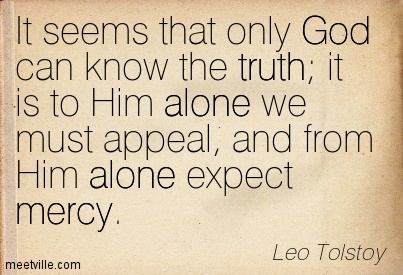 It is a matter of learning to remain in your love,
It is a matter of learning to remain in your love,
letting the stories of Jesus enter into the story of our lives,
so that we live permanently in him and present to you.
Gradually, we stop worrying about what we want
and we find that whatever we ask for we are getting.
As for good works, they are like fruit which appears on the branches of a tree when the season comes –
we don’t have to bother about them at all,
because they are the work of your glory.
That is how we become your disciples.
Thank you, Lord.
***********************************
Thomas O’Loughlin
Liturgical Resources for the Year of Matthew
www.columba.ie
Introduction to the Celebration
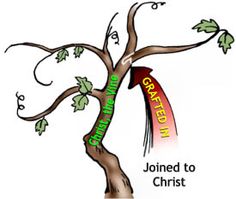 We gather as people who have been grafted into Christ by baptism, as the people who have heard his voice and who seek to follow him in our lives, and to join with him in prayer in thanking the Father.
We gather as people who have been grafted into Christ by baptism, as the people who have heard his voice and who seek to follow him in our lives, and to join with him in prayer in thanking the Father.
In today’s gospel we are reminded that this discipleship is not a passive affair: we are made part of Christ so that through us the Father’s kingdom can come closer to all humanity and so that, through us, his will can be done on earth as it is in heaven.
Comments on Gospel: Jn 15:1-8
That Jesus is the true vine is one of the important images in John for the relationship of the community to God. In this he takes over the Old Testament images of Israel as the vine, and the pruning image from the prophets (e.g. Jer 5:10 or Ezek 17:7). The relationship of ‘remaining in’ Jesus is the foundation for the confidence that the community has in its prayer to the Father.
Homily Notes
1. During this whole period of the year, the focus is on discipleship. In Lent the emphasis is on recognising the blockages that exist in our lives in following Christ and repairing damaged relationships with God and our neighbours. In Easter it is about growing in discipleship.
2. Discipleship is not a rush of enthusiasm, but a long term committment to following Christ, collaborating with Christ, to having a relationship with the Father through Christ. And, in every long-term relationship there is need for refocusing, replenishing, restoring, and reconciliation.
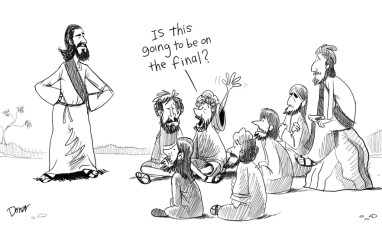 3. Discipleship is also about ‘discipline’ in the sense of training and the building of habits of behaviour. To be a disciple of Jesus requires training in a particular way of living, it requires the acquisition of specific skills, and it requires the practice to know how to put those skills into practice in our lives. For example, to follow Christ requires that we have developed some skills in prayer – not perhaps the elaborate schemes for prayer that some teachers of prayer have developed over the centuries, but it does require knowing the basic prayers of the Christians. But the skill of praying requires the practice of regular prayer and the prudence to know that sometimes one has time to pray and sometimes one does not. A Christian lifestyle demands sympathy for the poor and those suffering injustice, but this sympathy is a skill which entails recogising injustice and knowing that it is not part of God’s plan, and the prudence to know how to do something about it.
3. Discipleship is also about ‘discipline’ in the sense of training and the building of habits of behaviour. To be a disciple of Jesus requires training in a particular way of living, it requires the acquisition of specific skills, and it requires the practice to know how to put those skills into practice in our lives. For example, to follow Christ requires that we have developed some skills in prayer – not perhaps the elaborate schemes for prayer that some teachers of prayer have developed over the centuries, but it does require knowing the basic prayers of the Christians. But the skill of praying requires the practice of regular prayer and the prudence to know that sometimes one has time to pray and sometimes one does not. A Christian lifestyle demands sympathy for the poor and those suffering injustice, but this sympathy is a skill which entails recogising injustice and knowing that it is not part of God’s plan, and the prudence to know how to do something about it.
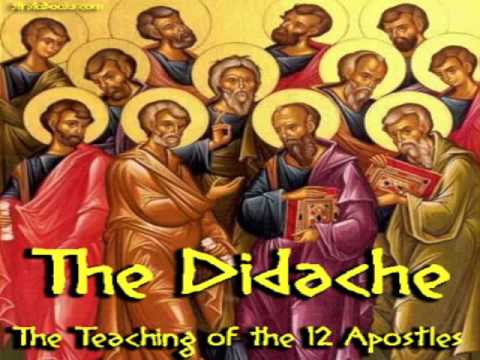 4. In the early church there were little manuals for leaders and mentors in the community to use with those who were about to become Christians, to impart the basic Christian skills to them. We often translate these as ‘manuals of teaching’ (e.g. the Didache is one of them), but a more careful look at their titles and content shows that they should be seen as disciple-making guides and that they were not concerned with ‘doctrine‘ or ‘teaching‘ such as is found in a catechism, but with imparting the habits and skills so that the newcomer would know how to behave within the new community she or he was entering. Hence, they impart a series of ‘do‘ and ‘do not‘ rules, they guide on how and how often to pray, when and why to fast, when and how to assemble for the Eucharist. To become a Christian, that is to rise with Christ in baptism at Easter, was to have started the life-long process of acquiring the skills to be grafted onto Christ.
4. In the early church there were little manuals for leaders and mentors in the community to use with those who were about to become Christians, to impart the basic Christian skills to them. We often translate these as ‘manuals of teaching’ (e.g. the Didache is one of them), but a more careful look at their titles and content shows that they should be seen as disciple-making guides and that they were not concerned with ‘doctrine‘ or ‘teaching‘ such as is found in a catechism, but with imparting the habits and skills so that the newcomer would know how to behave within the new community she or he was entering. Hence, they impart a series of ‘do‘ and ‘do not‘ rules, they guide on how and how often to pray, when and why to fast, when and how to assemble for the Eucharist. To become a Christian, that is to rise with Christ in baptism at Easter, was to have started the life-long process of acquiring the skills to be grafted onto Christ.
5. This notion of skilling is not one often used today within the context of preaching, yet everyone knows it from his or her workplace. Every job has a prescribed skill-base – you must have the skills and the experience to use them or the job is not yours. Adverts read: ‘you will have high standard IT skills, competence in HR, …’ – and if not, you are not ‘our kind of person’. Equally, people do not just have skills, they need retraining, in-service training, continual professional development. As current management speak has it: ‘without continual staff-development, you are de-skilling your workforce.‘ This is exactly similar to the situation with the skills of discipleship and being the sort of person that can be described as ‘Christian‘.
6. While we readily link Lent with this sort of returning, reforming, restoring, it is equally true of the time after Easter: during this time the newly baptised are supposed to be getting the mentoring they need to be full disciples; but also all the baptised are supposed to be refining their skills, and retraining, and up-dating their understanding of discipleship, here lies the focus of today’s gospel. We are all grafted into Christ and have entered the service of the Father, but our belonging requires that we bear fruit. Have we the skills and the practice in the skills to recognise that we are not just passively ‘grafted on; we are grafted on in order that we can bear fruit. Note that in each image the point at issue is not belonging, but activity which fulfills the purpose of that to which we are grafted. We are not ‘in Christ’ as a cup of water diffused in a barrel – a passive image, but made part of vine and the vine only makes sense when it yields the grapes for which it was planted and tended.
7. It is from this perspective of discipleship being costly, demanding commitment, and serious long-term training that we can read this gospel in Eastertime. This is how we are to understand its references to pruning, and dead wood being thrown-away and burnt. Discipleship is being someone with the vision to see the kingdom in outline and the skills to help build it. It requires a dynamism that the word ‘following’ does not convey in English, and it requires a commitment to the coming of the kingdom and to doing the Father’s will on earth – this is the fruit we must show for being part of Christ.
8. It is to the glory of my Father that you should bear much fruit, and then you will be my disciples.’
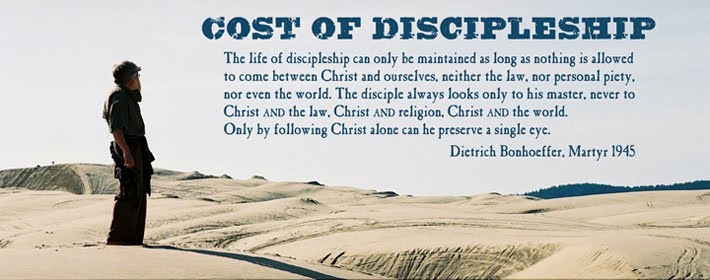
***********************************
Sean Goan
Let the reader understand
www.columba.ie
Gospel: John 15:1-8
This Sunday in our reading from John there is a change in symbolism from shepherding to that of 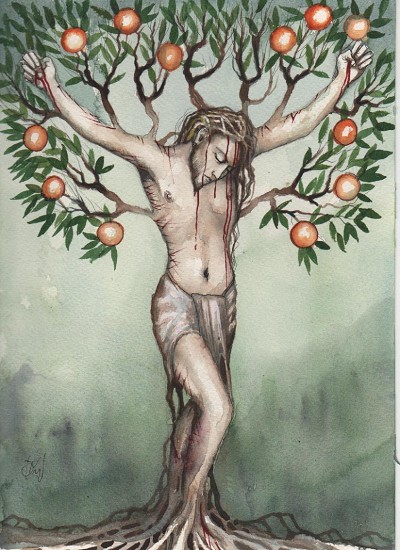 the vine. This too is an image that derives from the Old Testament where the prophets speak of the chosen people as God’s vine that he tends with love in the hope of it producing choice fruit. The evangelist now takes that same idea and revolutionises it by showing us that Jesus is the true vine and the disciples are his branches, in other words they cannot and do not exist apart from him. Two important aspects of the believer’s relationship with Jesus emerge from this: intimacy and fruitfulness. We are in complete union with him, that is, we remain or abide in him and draw life from him. Since we draw life from him then we will bear fruit and that means that we cannot claim to be his disciples and live only for ourselves.
the vine. This too is an image that derives from the Old Testament where the prophets speak of the chosen people as God’s vine that he tends with love in the hope of it producing choice fruit. The evangelist now takes that same idea and revolutionises it by showing us that Jesus is the true vine and the disciples are his branches, in other words they cannot and do not exist apart from him. Two important aspects of the believer’s relationship with Jesus emerge from this: intimacy and fruitfulness. We are in complete union with him, that is, we remain or abide in him and draw life from him. Since we draw life from him then we will bear fruit and that means that we cannot claim to be his disciples and live only for ourselves.
Reflection
Looking at the story of Paul in the first reading, we are reminded that we can never predict how and where God will speak to us. It is not difficult to imagine the fear of the Jerusalem church when they heard that Saul was back from Damascus. Some of them had probably witnessed his involvement in the death of Stephen, and now they were being asked to believe that he had become one of them. Surely it was a trick! It took Barnabas to show them the way. Just as God was to be found in a crucified Messiah, why couldn’t he now be working through Saul the Pharisee? Sometimes faith demands that we take risks because God would have us look for him in the most unexpected places. If we are attached to Jesus the true vine, then our faith will be nourished and we will remain in him.
***********************************
Donal Neary SJ
Gospel Reflections
www.messenger.ie/bookshop
Jesus, the Centre
Without some centre of unity, groups lose their way. A team which puts its eyes on money rather than on teamwork will lose games. A family which relies on anything other than love to keep it together will fall apart. The church, the community of Jesus is something similar.
 What keeps the church together at its best is Jesus. Human leadership, moral authority, ritual dogmatism, are not the centre of the church. Leadership can fail, moral authority can take wrong turnings and ritual dogmatism can override the concerns of people. The centre of the church is Jesus Christ. Our unity with Jesus is the central bond of the church. He is the Vine, we the branches.
What keeps the church together at its best is Jesus. Human leadership, moral authority, ritual dogmatism, are not the centre of the church. Leadership can fail, moral authority can take wrong turnings and ritual dogmatism can override the concerns of people. The centre of the church is Jesus Christ. Our unity with Jesus is the central bond of the church. He is the Vine, we the branches.
When we have been let down by the church, like in the situations of abuse, or cover-ups by church authority, we are kept going as Christians by our unity with Jesus.
The image of roots and branches, of fruit and tree, all very much part of each other, is what Jesus uses. Other images like this might be the unity or light and colour in a rainbow.
Only if we can look on Jesus Christ as the centre of our faith can church life be sincere and have the energy which will save and change our world.
Imagine yourself being with Jesus; just the two of you.
Share what is in your heart and listen to how his word echoes within you.
May we dwell in you, Lord, as you dwell in us.
Give us your peace, your energy, your joy.
____________________________________________________________